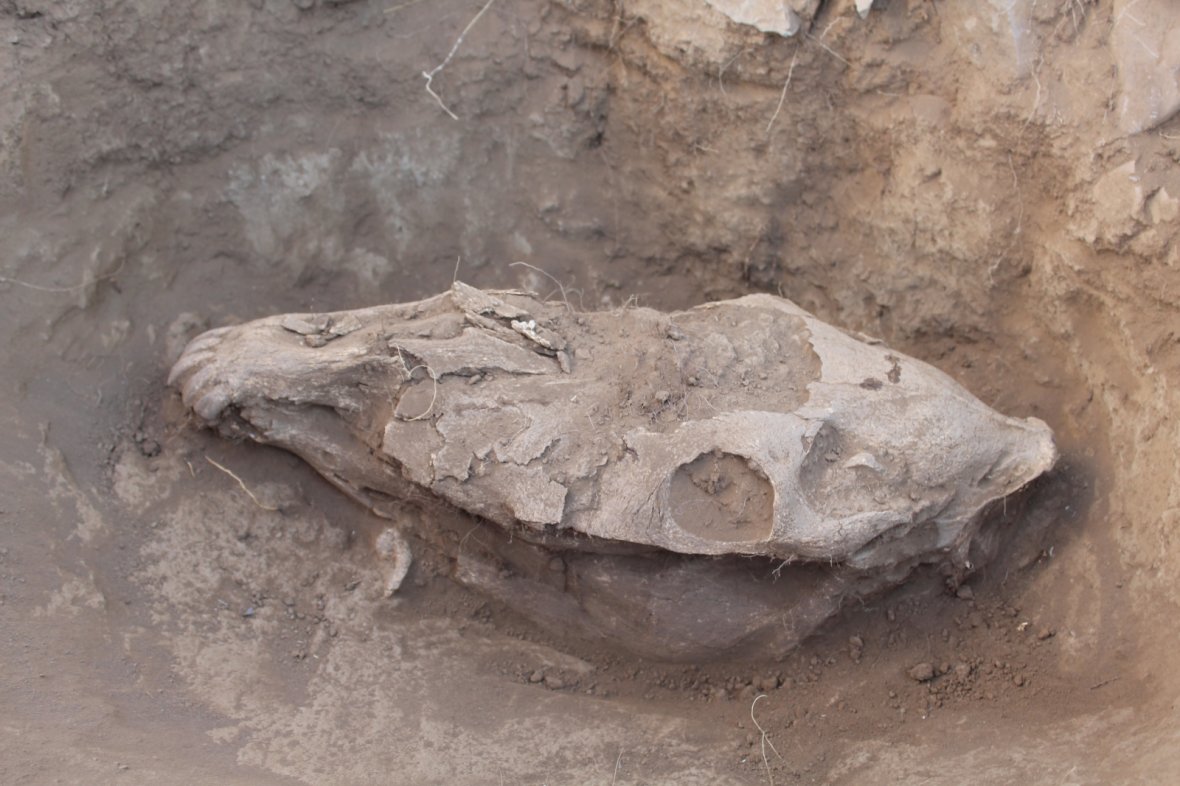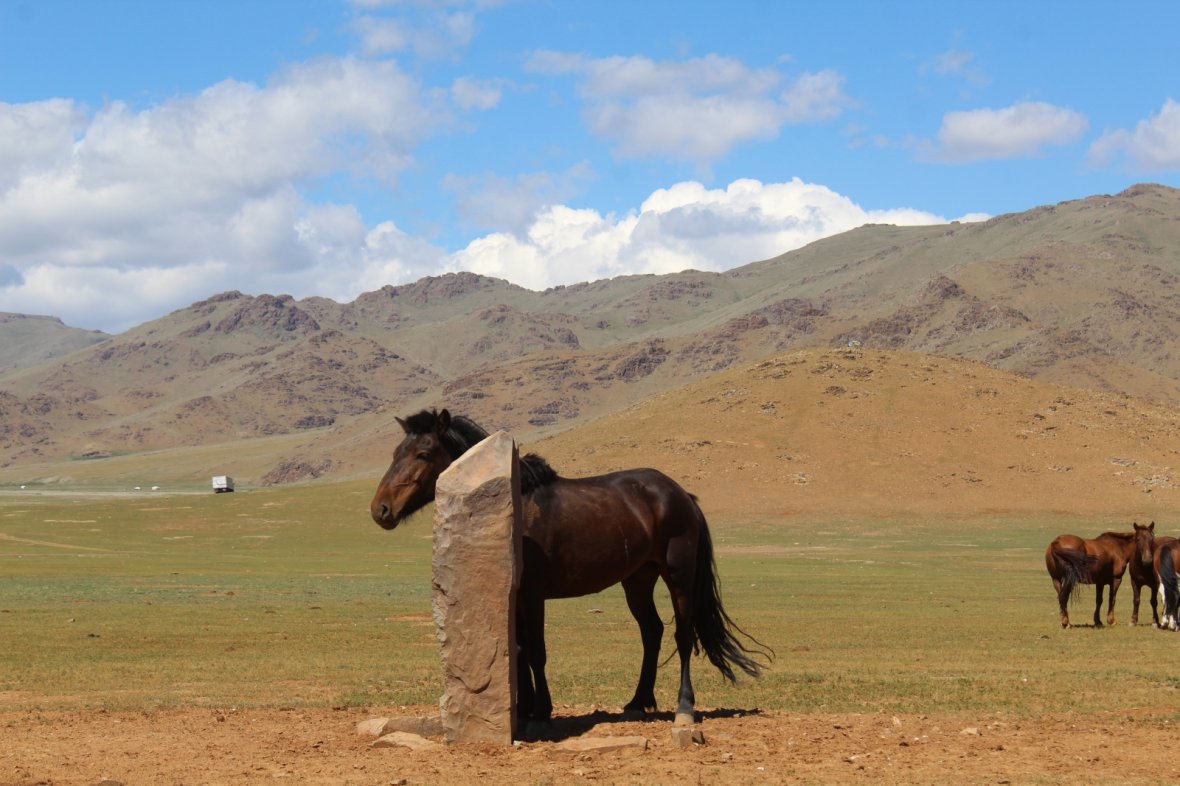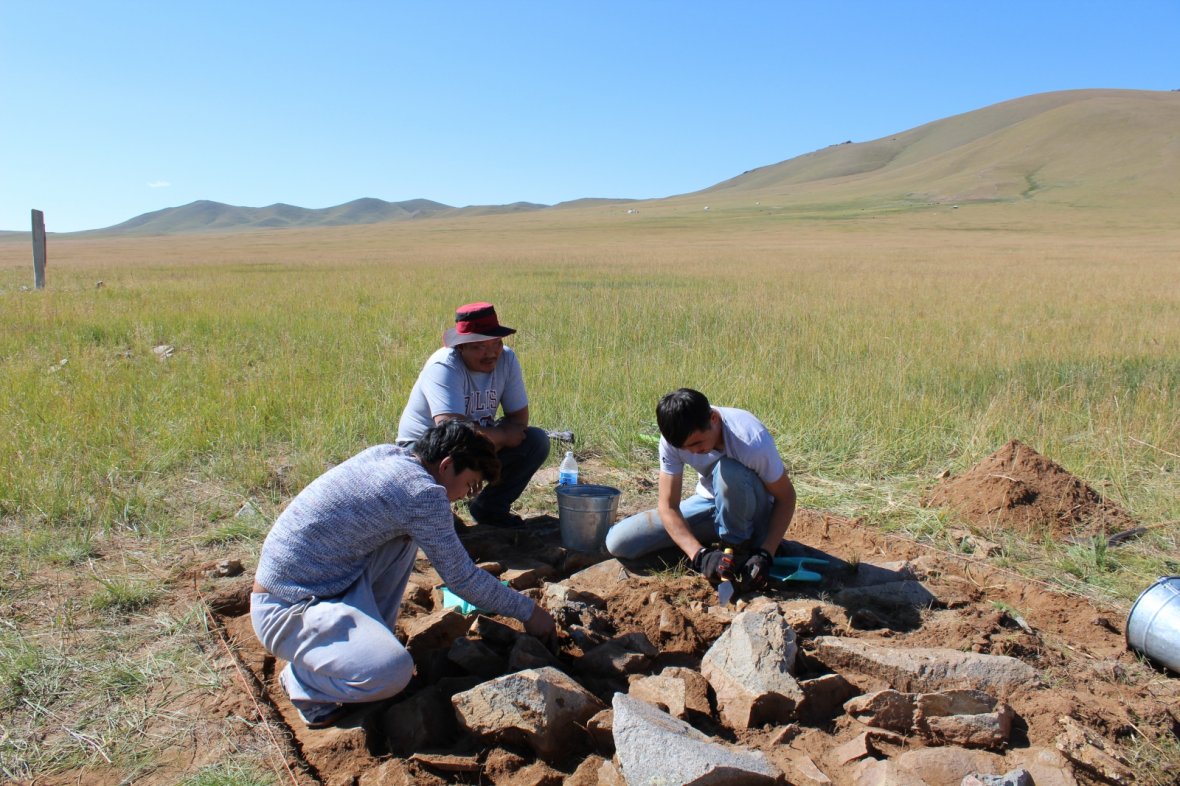The first evidence of sophisticated horseback riding in Mongolia has been dated to the Bronze Age in 1200 BCE by analysis of horse remains in burial mounds. The discovery pushes back the date for this cultural development centuries earlier than historical sources suggest.
Genghis Khan and the Mongol hordes were incredibly skilled horseback riders. Their fearsome mounted armies conquered much of the Eurasian steppe. But sophisticated horse-riding had been present in the area about 2,000 years before Khan's reign, according to a study published in the Journal of Archaeological Science.



